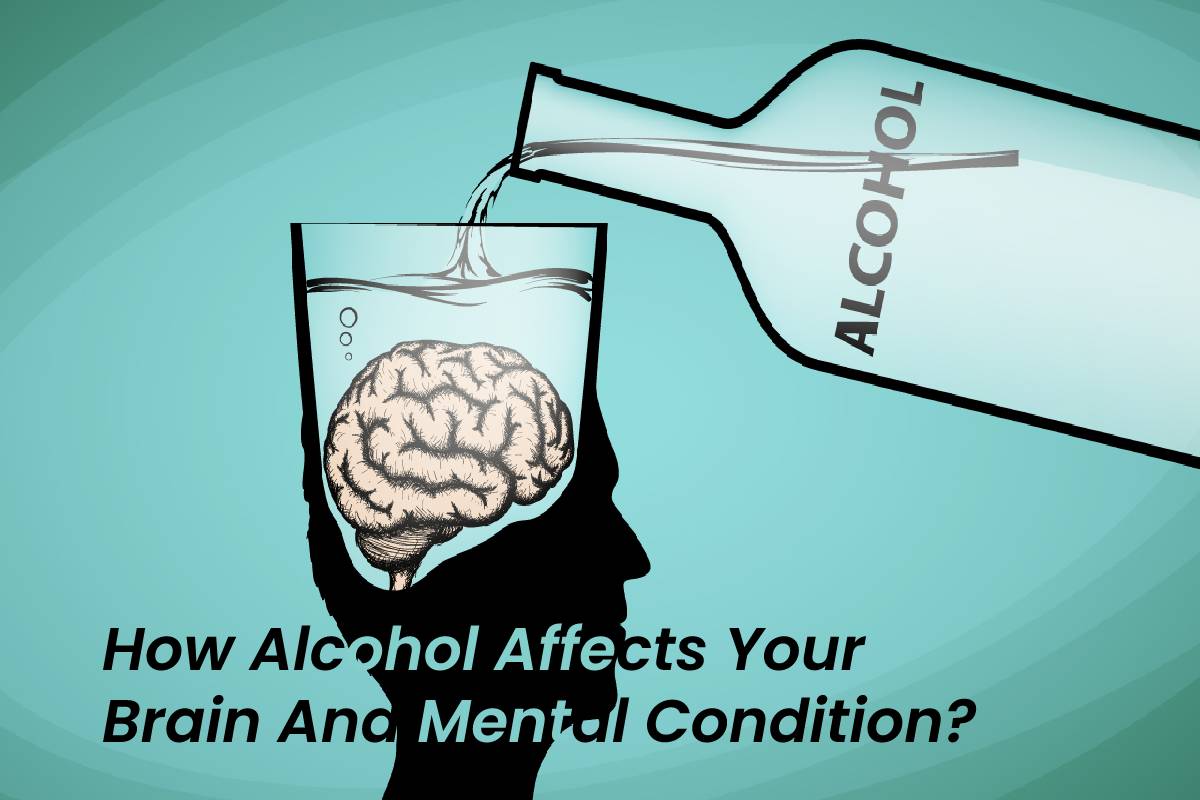
While alcohol might have a favorable short-term influence on our mood, it can also cause long-term difficulties with our mental health.
Alcohol use has been related to various mental health concerns ranging from sadness and memory loss to suicide.
Regular, excessive drinking interferes with brain chemicals that are essential for optimal mental health.
So, while we may feel calm after a drink, alcohol has an effect on mental health in the long run, contributing to feelings of despair and anxiety and making stress more challenging to deal with.
If you are suffering from alcoholism, you can always contact the professionals at Infinite Recovery. Click https://www.infiniterecovery.com/san-antonio-drug-rehab/ to find out more about them.
Table of Contents
How Alcohol Affects Your Brain?
Alcohol is depressive, which means that it can upset the balance of neurotransmitters in your brain, affecting your feelings, thoughts, and behavior.
Because alcohol affects the region of your brain that governs inhibition, you may feel calmer, less worried, and more confident after a few drinks. On the other hand, if you’re coping with painful emotions, alcohol may momentarily dull them.
However, these effects are short-lived. Regardless of your mood, the chemical changes in your brain can quickly lead to more negative sentiments such as anger, melancholy, or worry taking control.
Alcohol also decreases the rate at which your brain absorbs information, making it more challenging to determine what you’re genuinely feeling and the potential implications of your actions.
In the long run, alcohol depletes and diminishes the number of neurotransmitters in our brains, yet we require a certain amount to combat anxiety and despair. This might lead to a need to drink more to alleviate these unpleasant sensations, leading to a cycle of dependency.
The effects of alcohol on the brain might manifest themselves in various ways. The first is neurotoxicity, which happens when neurons overreact to neurotransmitters over an extended period.
Excessive exposure to a neurotransmitter can lead neurons to “burn out.” Because neurons form the networks that connect different sections of the brain, when they begin to burn out, the reactions of these pathways might decrease noticeably.
Heavy alcohol consumption damages the pathways and the brain tissue itself. People addicted to alcohol frequently have “brain shrinkage,” which decreases the amount of gray and white matter over time.
How Alcohol Affects Your Body?
Alcohol may have a wide range of effects on your body. For example, excessive drinking can cause alcohol poisoning, sleep difficulties, upset stomach, bloating, and migraines in the short term.
It may cause you to act recklessly or angrily, cause you to have an accident, or make you a victim of violence.
Drinking heavily over a long period will have an effect on your body.
Long-term alcohol abuse raises your chance of developing significant health problems such as heart disease, stroke, high blood pressure, liver disease, and cancer. In addition, it can result in social issues such as marital breakdowns, unemployment, financial troubles, and homelessness.
Drinking high amounts of alcohol over a long period will have an effect on many of the body’s organs and may cause organ damage. For example, long-term alcohol abuse has been shown to harm the brain and neurological system and the heart, liver, and pancreas.
Heavy drinking can also raise your blood pressure and cholesterol levels, which are important risk factors for heart attacks and strokes.
Long-term alcohol abuse may wreak havoc on your immune system, making you more susceptible to deadly diseases. It can also weaken your bones, increasing your chances of fracturing or breaking them.
How Alcohol Worsens Your Mental Health Condition?
The physical signs of alcoholism may not be so prominent all the time, but that doesn’t mean alcohol is good for your body. It has an even worse impact on your mental health condition, which people don’t realize until it’s too late.
Let’s find out the mental health problems associated with alcoholism:
Anxiety
If you suffer from anxiety, drinking can provide a brief sense of relief – but this feeling fades away rapidly.
If you rely on alcohol to alleviate your anxiety, you may find yourself drinking more and more to unwind.
This can develop into alcoholism over time. Even if you don’t have anxiety and love binge drinking, you will develop anxiety once you develop a tolerance.
Depression
Heavy and frequent drinking is linked to depressive symptoms; however, separating cause and effect can be challenging.
As a result, it’s not always evident if drinking alcohol causes a person to feel depressive symptoms.
People with depression who consume alcohol frequently report feeling better within the first few weeks of quitting.
If you try it and feel better, the alcohol was probably the source of your sadness. If your depressive symptoms persist, get treatment from your doctor. But, you should never take antidepressant medications with alcohol.
Suicide And Self-Harm
Alcohol might cause you to lose your inhibitions and behave more impulsively, leading to self-harm or suicide. Suicidal thoughts and attempts are also connected to binge drinking.
Alcohol can lead to reckless behaviors that people would not have performed otherwise, such as harming yourself or others while drunk driving.
There is an essential link between binge drinking, chronic or acute alcohol abuse and suicidal thoughts, suicide attempts, and suicide death.
Call for help if you are suffering from sadness or despair, especially those sentiments that may lead to suicide.
Psychosis
Psychosis is a severe mental disease characterized by hallucinations and delusions, such as persecution.
If you consume a lot of alcohol regularly, you may develop psychosis. Likewise, if you are a strong drinker and suddenly quit drinking, you may experience psychosis too.
If you are an aggressive drinker and drinking more than 30 units per day for many weeks, it can occasionally result in psychosis.
Psychosis can be produced by acute intoxication and withdrawal, and they are more prevalent when dependent drinkers abruptly cease drinking.
Conclusion
If you drink too much alcohol regularly, it’s best to spread the amount across three or more days.
The more you drink regularly, the more likely you will develop various significant mental and physical health issues.
Having several drink-free days each week is a smart approach to reduce your alcohol consumption. But, on top of that, you must abstain from excessive drinking.
You can visit an Integrative Medicine Doctor, Integrative medicine is defined as healing-oriented medicine that takes account of the whole person (body, mind, and spirit), including all aspects of lifestyle and also contact Alcohol Rehab Las Vegas.
For further questions, let us know in the comment box.


